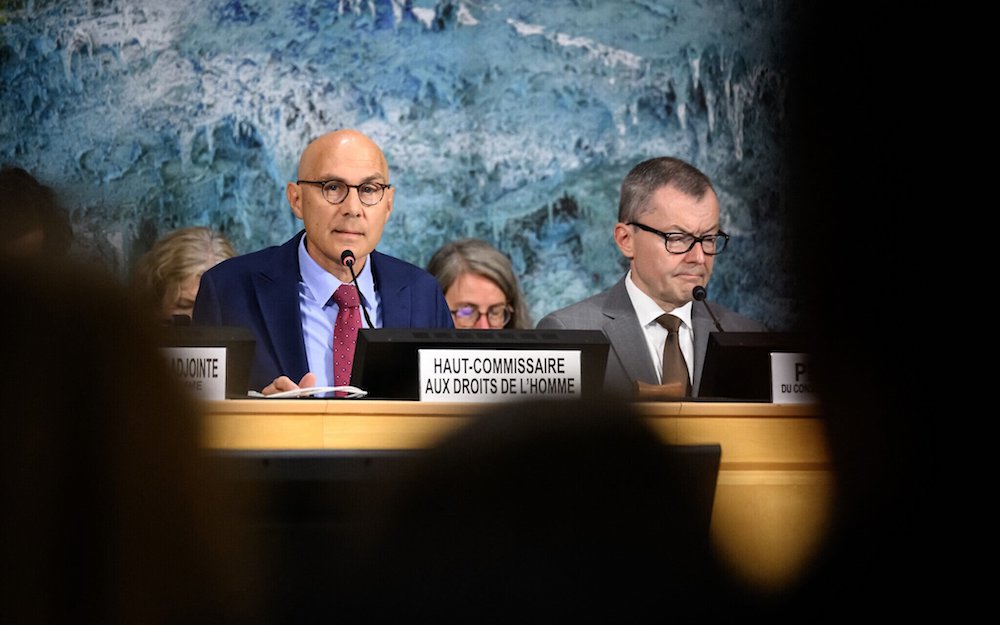UN High Commissioner Volker Turk during the 60th session of the UN Human Rights Council, in Geneva, on September 8, 2025. (Photo/AFP)
Tsering Dhundup
Phayul Newsdesk, September 10, 2025
DHARAMSHALA, Sep. 10: United Nations High Commissioner for Human Rights Volker Türk has raised fresh concerns about the situation in Tibet, warning that meaningful progress on protecting the rights of Tibetans in Tibet remains absent despite years of international engagement with China during the 60th session of the United Nations Human Rights Council in Geneva, Switzerland on Monday.
Speaking at the opening of the 60th UNHRC session, Türk said, “In China, the progress we have sought for the protection of the rights of Uyghurs and other Muslim minorities in Xinjiang, as well as Tibetans in their regions, has yet to materialise. This is a priority for my office’s engagement.”
The High Commissioner’s remarks coincided with China’s recent celebration of the 60th anniversary of the establishment of the Tibet Autonomous Region (TAR). Official narratives from Beijing highlighted economic growth, infrastructure development, and modernisation as evidence of success under Chinese governance.
However, independent observers and human rights advocates presented a sharply different reality, pointing to systematic restrictions on Tibetans’ cultural and religious freedoms. Reports highlight the detention of individuals such as Asang, punished for singing songs in honour of the Dalai Lama, and the tragic case of Gompo Kyi, who attempted suicide in protest of her brother’s prolonged imprisonment. The death of Tibetan religious leader Gonjo Tulku Palden Wangyal while in Chinese custody has further underscored the risks faced by those who resist state policies.
Criticism has also centred on education and language policies. Tibetan children are increasingly placed in state-run boarding schools, where curricula emphasise Mandarin and diminish Tibetan language and culture. Rights groups warn that such practices amount to cultural assimilation, threatening the survival of Tibetan heritage across generations.
The UN Human Rights Office and the UN Tibet Bureau have repeatedly raised concerns in international forums, citing intensified surveillance, restrictions on monasteries, arbitrary detentions, and the criminalisation of peaceful expression. Such measures, they argue, contravene China’s obligations under international law.

